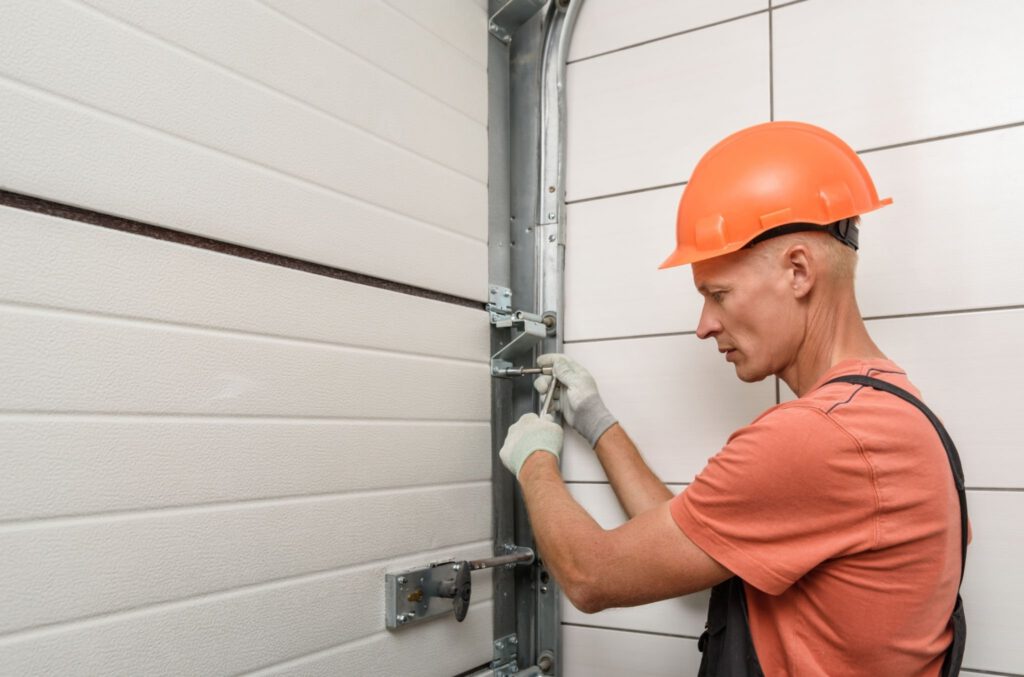Garage doors are an essential part of any residential or commercial property. They provide security, convenience, and aesthetic appeal. One crucial component of a garage door is its spring system. Understanding the different types of garage door springs and their repair is vital for ensuring your garage door’s smooth functioning and longevity. This article will delve into the various types of garage door springs, their unique characteristics, and the necessary steps for their repair and maintenance.
Types of Garage Door Springs
1. Torsion Springs
Torsion springs are the most common type used in modern garage doors. They are mounted horizontally above the garage door opening and work by twisting or torquing to counterbalance the door’s weight. Torsion springs provide a smoother, more controlled lifting motion than other spring systems. They are typically found in residential garage doors but can also be used in commercial applications.
2. Extension Springs
Extension springs are another type of garage door springs that are commonly used in older residential properties. Unlike torsion springs, extension springs are mounted vertically on either side of the garage door tracks. These springs stretch and contract to facilitate the opening and closing of the door. Extension springs are usually paired with safety cables to prevent accidents in case of spring failure.
3. Wayne Dalton TorqueMaster Springs
Wayne Dalton TorqueMaster springs are unique torsion springs designed specifically for Wayne Dalton garage doors. They are concealed within a tube, making them more aesthetically pleasing than traditional exposed torsion springs. TorqueMaster springs require specialized tools and knowledge for garage door repair and replacement, so it is advisable to seek professional assistance when dealing with this spring system.

Signs of Garage Door Spring Issues
Identifying potential problems with your garage door springs, such as issues with tension or alignment, is crucial for timely garage door repair and avoiding costly damages. Here are some common signs that indicate spring issues:
- Difficulty in Opening or Closing: If your garage door struggles to open or close smoothly, it may be a sign of worn-out or damaged springs.
- Uneven or Slanted Door: A garage door that appears uneven or slanted when opening or closing suggests a spring imbalance, which requires immediate attention.
- Loud Noises: Excessive squeaking, grinding, or popping sounds during garage door operation can indicate spring problems. Such noises may occur due to a lack of lubrication or worn-out springs.
- Visible Wear and Tear: Inspect the springs visually for signs of wear, such as rust, corrosion, or gaps in the coils. Damaged or worn springs should be addressed promptly.
Garage Door Spring Repair and Maintenance
When it comes to repairing or maintaining your garage door springs, it is important to prioritize safety. Working with garage door springs can be dangerous due to the high tension they hold. Hiring a professional garage door technician for complex repairs or replacements, such as garage door repair, is recommended. However, there are some basic maintenance tasks you can perform to keep your springs in good condition:
- Regular Lubrication: Apply a silicone-based lubricant to the garage door’s springs, hinges, and other moving parts. Lubrication helps reduce friction and extends the lifespan of the springs.
- Visual Inspection: Inspect the springs visually every few months to check for signs of wear, damage, or misalignment. If you notice any issues, contact a professional for further evaluation.
- Safety Cable Installation: If your garage door has extension springs, ensure they are equipped with safety cables. These cables provide an additional level of protection in case the springs break.
- Avoid DIY Repairs: Garage door spring repairs require specialized knowledge and tools, including technical tasks like replacement. Attempting to fix or replace springs on your own can lead to accidents or further damage. It is best to leave complex repairs, such as garage door repair, to trained professionals.
Conclusion
Understanding the different types of garage door springs and their repair is essential for maintaining a functional and safe garage door. Whether you have torsion springs, extension springs, or Wayne Dalton TorqueMaster springs, regular maintenance, and timely repairs will ensure the longevity of your garage door system. Remember to prioritize safety and consult a professional garage door services in Joshua, TX, for any complex spring-related issues. You can enjoy a smooth and reliable operation for years by properly caring for your garage door springs.
